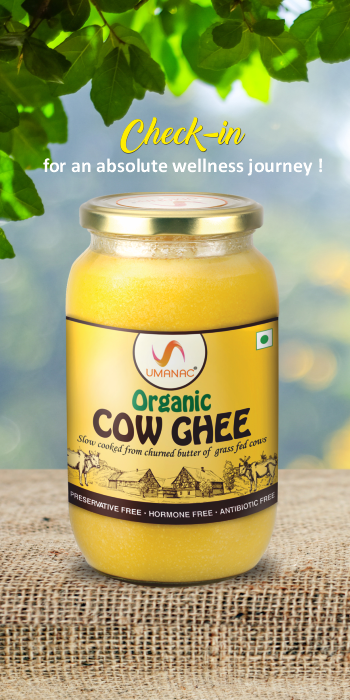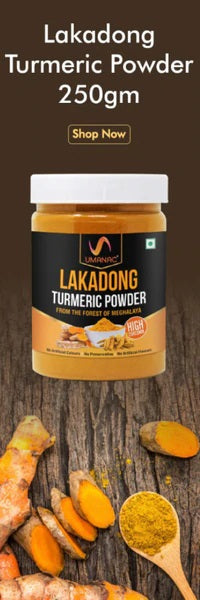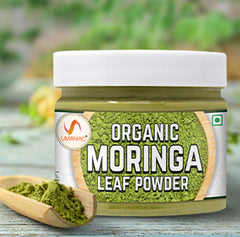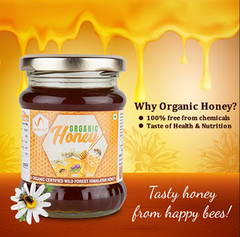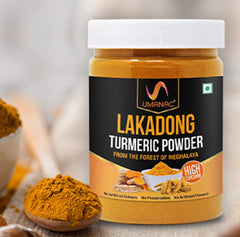Ghee is one ingredient that sticks out in the world of culinary delights because of its rich flavour, versatility, and special health ghee benefits. Ghee, sometimes known as "liquid gold," has been a staple of traditional Indian cuisine for ages. However, its appeal has crossed cultural barriers, making it a favourite ingredient in kitchens worldwide.
What sets ghee apart from butter, you may ask? Let's explore the wonders of this lactose-free cooking hero.
Is ghee lactose-free?
Ghee is lactose-free because of the process used to make it. Traditional ghee-making involves boiling butter until it is clear, which separates the milk particles from the liquid fat. The milk solids, which contain lactose (a sugar found in milk), are next removed, leaving only pure butterfat. This clarifying method efficiently removes the lactose from the ghee, making it suitable for consumption by anyone with lactose intolerance or dairy allergies.

Can lactose intolerant people eat ghee? 5 Ways to Include Ghee in Your Lactose-Free Diet
Absolutely! Ghee is a safe choice for those who are lactose-intolerant. It can make a tasty addition to one's diet. Here are five wonderful ways to integrate ghee into your lactose-free diet:
Sautéing and Frying: Use ghee to sauté vegetables or fry your favourite delicacies. Its high smoke point allows for cooking at high heat without burning.
Baking: For a deeper, nuttier taste in your baking recipes, try using ghee instead of butter or oil. It lends a lovely richness to cookies, cakes, and bread.

Drizzling: To provide a luscious finish, drizzle melted ghee over popcorn, roasted veggies, or freshly cooked pasta.
Coffee or Ghee: Blend ghee into your morning coffee or tea for a creamy, foamy texture that gives you energy all day.

Topping: Spread ghee on toast or pancakes, or use it to top steamed rice or mashed potatoes. Its rich, buttery flavour will enhance any dish.
What are the ghee butter benefits of lactose-free diet?
High Smoke Point: Ghee has a high smoke point, which makes it perfect for high-temperature cooking without burning or creating dangerous compounds.
Rich in Fat-Soluble Vitamins: Ghee contains fat-soluble vitamins such as A, D, E, and K, which are required for several body activities, including immunological health and bone density.
Contains Conjugated Linoleic Acid (CLA): Grass-fed ghee, in particular, is high in conjugated linoleic acid, a fatty acid that has antioxidant and anti-inflammatory qualities.
Supports Digestive Health: Ghee includes butyric acid, a short-chain fatty acid that nourishes the digestive tract's cells and promotes intestinal health.
Why is grass-fed ghee a better option for a lactose-free diet?
While all ghee is lactose-free, choosing grass-fed ghee provides additional nutritional benefits. Grass-fed ghee like Umanac A2 Desi Gir Cow Ghee is made from cows that graze on nutrient-rich pasture, which results in a higher concentration of important nutrients like omega-3 fatty acids, vitamins, and antioxidants. Moreover, grass-fed ghee includes higher quantities of CLA, which has been linked to several kinds of health advantages, including weight loss and cardiovascular health.

To conclude, ghee is much more than a substitute for butter. It's a lactose-free cooking hero that enhances flavour, nutrition, and adaptability in every meal. Whether you're lactose intolerant or just looking for a healthier option, ghee is a great addition to your cooking arsenal. So, the next time you're in the kitchen, reach for the Umanac’s jar of golden bliss and let the magic of ghee take your food to the next level.
Disclaimer –
This information is provided for educational and entertainment purposes only. We do not accept any responsibility for any liability, loss or risk, personal or otherwise, incurred as a consequence, directly or indirectly, from any information or advice contained here.

